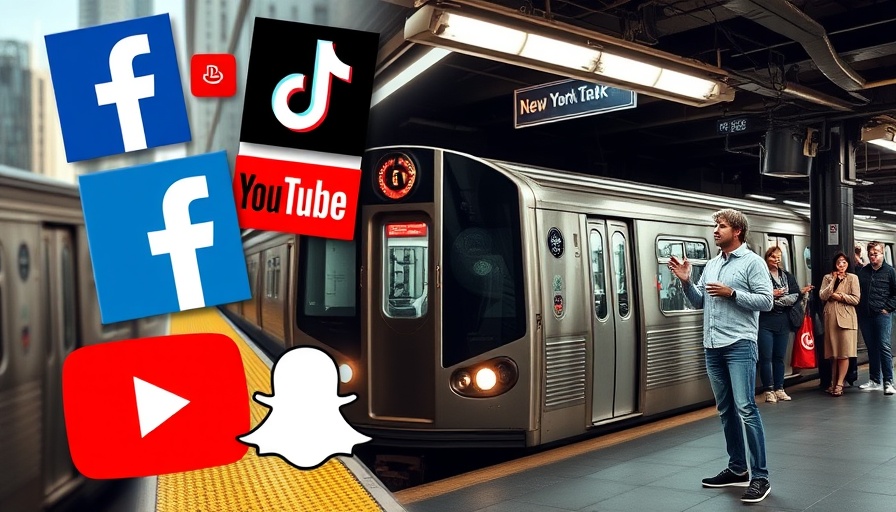
NYC Takes Bold Steps Against Social Media Giants
In a significant legal move, New York City has launched a groundbreaking lawsuit against major tech players including Meta (Facebook, Instagram), Alphabet (Google, YouTube), Snap (Snapchat), and ByteDance (TikTok). This 327-page complaint accuses these companies of contributing to a growing mental health crisis among youth by making their platforms inherently addictive. This lawsuit is part of a broader wave of approximately 2,050 similar cases nationwide, highlighting a crucial conversation about the role of social media in child welfare.
Understanding the Allegations
Filed in Manhattan federal court, the lawsuit alleges that these platforms engage in “gross negligence,” contributing to severe public health concerns. The city cites alarming statistics: over 77% of high school students, and 82% of teen girls, report spending more than three hours daily on screens. This excessive screen time correlates with increased school absenteeism and chronic sleep deprivation, raising red flags about the mental health of young individuals.
The Addiction Factor: Compulsive vs. Health
The complaint emphasizes that the design of these platforms intentionally exploits the psychology and neurophysiology of young users to drive compulsive use. The city’s health commissioner has declared social media a public health hazard, pointing out that resources are being diverted to address the consequences, thereby straining the local healthcare system.
Subway Surfing: A Dangerous Trend
Among the consequences highlighted in the lawsuit are dangerous activities linked to social media trends, such as “subway surfing.” Tragically, at least 16 fatalities have been reported since 2023 due to this risky behavior, illustrating the dire consequences that excessive engagement with social media can foster. The city asserts that tech companies should be held accountable for the harms inflicted on youth and the educational resources that are burdened as a result.
Growing Response Across the Nation
New York City is not alone in this initiative. Other governments and school districts across the United States are also joining the fray, united by the belief that comprehensive action is needed against these corporate giants. Notably, this lawsuit aims to establish a precedent that may deter tech companies from prioritizing engagement over the mental health of children and adolescents.
Reactions from the Tech Giants
In response to the lawsuit, representatives from the accused companies have firmly denied the allegations. Google spokesperson Jose Castaneda, for instance, stated that the claims against YouTube are misguided, emphasizing the platform’s primary identity as a streaming service rather than a social network. This assertion echoes a growing sentiment among tech companies that they are misrepresented and misunderstood by critics.
The Broader Implications of the Lawsuit
This lawsuit has far-reaching implications not only for New York City but for the future of social media regulation. If successful, it could pave the way for stricter guidelines governing how technology companies operate, particularly in relation to their younger users. Public opinion is beginning to shift, and as families increasingly voice concerns about the digital world, this could herald a new era of accountability for tech giants.
Local Perspectives on the Mental Health Crisis
For local residents and families, the implications of social media addiction are stark. Parents are challenged to oversee their children’s screen time while ensuring mental well-being. Schools and communities may need to reflect on the dynamics at play—how technology is integrated into everyday life and the associated consequences on youth behavior and academic performance.
Take Action: Share Your Story
As this lawsuit unfolds, local voices are essential. Have a story to share or want to contact us for more details? Drop us an email at team@kansascitythrive.com. Engaging with this conversation is vital as communities strive to find balance in the digital age and prioritize the well-being of youth.
 Add Row
Add Row  Add
Add 




Write A Comment